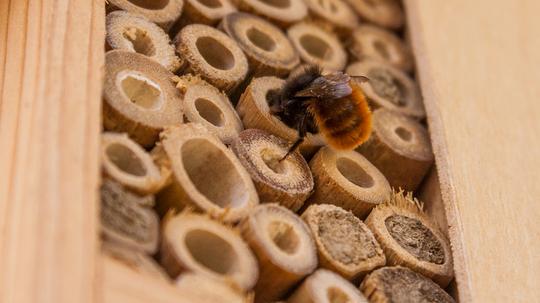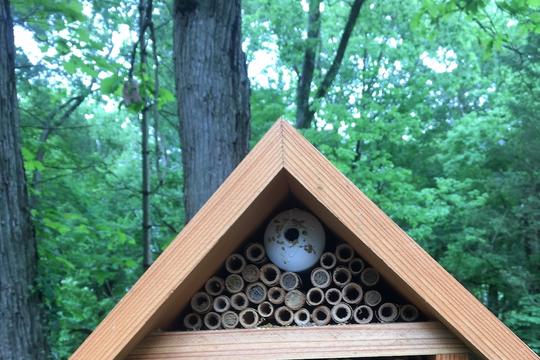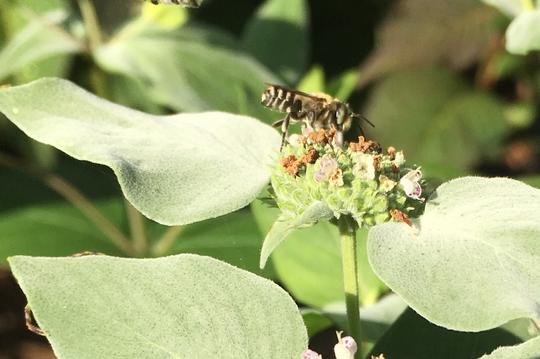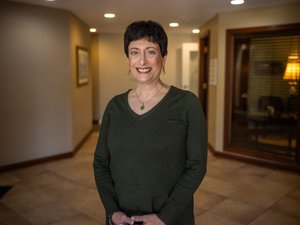
Justina Block founded the 2017-born Osmia Bee Company with one thing in mind: to help save bees.
“Many people are not aware that we are facing a global crisis,” Block said. “In the past decade alone, we have lost 80 percent of the honey bee population and an additional 700 of the 4,000 natives of North America bee species are in danger. Without these insects, the health of our agriculture, forest and home gardens are in jeopardy.”
She has a front-row seat to the problem as a self-proclaimed bee enthusiast who's raised native bees since 2012. Its her passion for both the work with the insects and a desire to save them that led her to bootstrap her company that allows homeowners and others like her start small hives in their own yards.
"One Mason bee can pollinate are effectually as 100 honey bees."
OBC sends buyers everything they need to raise the bees themselves: A shelter that is similar in shape to an A-frame cabin, with a with a small viewing window on the side; nesting holes and reeds for bees to incubate in; and a cocoon shipment, which contains, well, cocooned bees.
Buyers receive said cocoons for their kit once the temperature reaches a consistent 70-80 degrees. They're given instructions on how to set up their cabins and in what position on the yard (facing the sun). Then, the magic happens as the bees come out of their cocoons — which users can watch through the cabin's viewing window.
Each cocoon shipment contains Mason Bees, which don't make honey. The goal, after all, isn't to bolster honey production, but allow this type of insect to flourish throughout the country as bees are an integral part of the food chain.
“In North America alone, we have over 4,000 species of native bees, 500 here in Ohio,” she explained. “Bees help produce more then one third of the worlds food. One out of every three bites of food you take is thanks to a bee. Basically, more bees means more food."
Mason bees in particular a "super pollinators," Block said. "One Mason bee can pollinate are effectually as 100 honey bees; [they're] gentle and non-aggressive [and] can increase yields in nut, fruit and seeds.”
Osmia's work has been well-received.
"I’m supported by amazing collection of friends, family, scientists and bee lovers — all that are dedicated to our mission,” Block said.










